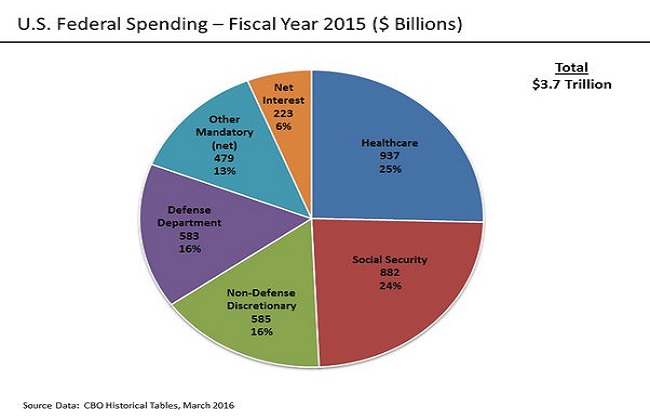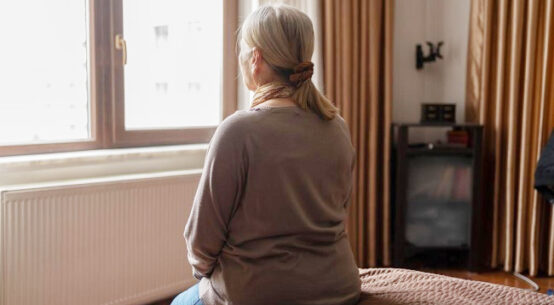
The World Bank and the International Monetary Fund (IMF) are returning to Africa, for the first time in decades, with the “same old failed message”.
“Cut your spending, sack public service workers, and pay your debts– despite the huge human costs” says Oxfam International’s interim Executive Director Amitabh Behar, following the release of new Oxfam report.
“They must show they can genuinely change to reverse the tide of widening inequality within and between countries,” he said.
The two Washington-based international financial institutions (IFIs) are holding their annual meetings October 9-15, this time in Marrakesh, Morocco, in north Africa.
In a new analysis released October 9, Oxfam says more than half (57 percent) of the world’s poorest countries, home to 2.4 billion people, are having to cut public spending by a combined $229 billion over the next five years.
On current terms, low- and lower-middle income countries will be forced to pay nearly half a billion dollars every day in interest and debt repayments between now and 2029. Entire countries are facing bankruptcy, with the poorest countries now spending four times more repaying debts to rich creditors than on healthcare.
“The World Bank says we are likely seeing the biggest increase in global inequality and poverty since World War 2, yet the Bank has no clear goal to reduce inequality.,” Behar said
For its part, the IMF claims to mitigate the worst effects of its austerity-driven loan programs through ‘social spending floors’ that ring-fence government spending on public services.
However, Oxfam’s analysis of 27 loan programs negotiated with low- and middle-income countries since 2020 found that these floors are a smokescreen for more austerity: for every $1 the IMF encouraged governments to spend on public services, it has told them to cut six times more than that through austerity measures.
“The IMF is forcing poorer countries into a starvation diet of spending cuts, driving up inequality and suffering,” said Behar.
Anuradha Mittal, Executive Director of the Oakland Institute, told IPS Oxfam’s report demonstrates the urgent need for governments in the Global South to prioritize raising taxes on the wealthiest to ensure the financing of healthy economies, the provision of basic essential services to the population, and decisive action on climate.
“Instead, the World Bank and the IMF are orchestrating yet once again an ill-driven race to the bottom that favors wealth accumulation while punishing the poor and most vulnerable and making economies less and less sustainable,” she said.
Looking at the debt and climate crisis, the only sensible move is for coordinated global action to tax wealth and financial flows, Mittal declared
Meanwhile, the Glasgow Actions Team (GAT) formed around the UN Climate Conference in 2021 in Glasgow, said it is committed to pushing the world’s climate champions to go farther, calling out the blockers, and exposing the deniers.
“It’s all eyes on (the new World Bank President) Ajay Banga and Marrakesh,” said Andrew Nazdin, Director of the Glasgow Actions Team.
“We applaud President Banga’s words on transforming the Bank into a powerful force for good. Now’s his chance for those words to become actions, which start with phasing out fossil fuel funding and issuing debt relief.”
“As a Tunisian activist from the Global South, at the forefront of those affected by the policies of financial funds and the least responsible for climate change, I am here to express my anger at what is happening and protest to achieve justice,” said Raouf Ben Mohamed of Debt for Climate.
Meanwhile, going into these annual meetings, Oxfam said, two big issues are at the forefront: the debt crisis and the urgent need to generate more resources for sustainable development, climate adaptation and tackling poverty in low- and middle-income countries.
However, the solutions being discussed by the World Bank, IMF and their biggest shareholders are only going to turn the vicious circle into a vortex.
“Rather than cancelling unpayable debts, rich countries want to use the Annual Meetings to fiddle with the Bank’s balance sheet to squeeze out money for yet more loans,” said Behar.
“In the next room, poorer countries are still being told to slash spending on public services and social programs critical to fighting poverty, reducing inequality, and realizing the rights of women and girls. Their answer to the debt crisis is more austerity, and their answer to the financing gulf is more loans. True win-wins, like fairly taxing the rich, are being left on the table.” He pointed out.
While people living in poverty bear the brunt of public spending cuts and the cost-of-living crisis, the wealthy are thriving. In the Middle East and North Africa, where the annual meetings are taking place:
–The richest 0.05 percent saw their wealth surge by 75 percent from $1.7 trillion in 2019 to nearly $3 trillion by the end of 2022. The region’s 23 billionaires have accumulated more wealth in the last three years than in the entire decade that preceded them.
–A five percent wealth tax on fortunes over $5 million would allow Egypt to double its spending on healthcare, Jordan to double its education budget and Lebanon to increase its spending on both healthcare and education seven times over. Morocco alone could raise $1.22 billion at a time it is facing an $11.7 billion repair bill from the recent devastating earthquake there.
“Austerity is an ideological fiction that has wrought incalculable damage,” said Behar.
“Who will deliver babies and save lives later when nurses and doctors in public hospitals lose their jobs now? “
“The IMF and the World Bank must enable governments to pursue economic policies that redistribute income and invest in public goods to dramatically reduce the chasm between the rich and the rest.”
Footnote:
In 2021, low- and middle-income countries spent 27.5 percent of their budgets on debt service, which was twice their education spending, four times health spending and nearly 12 times social protection spending.
Link to Oxfam’s report “The MENA Gap: Prosperity for the Rich, Austerity for the Rest” and methodology note.
In July, more than 230 economists and inequality leaders, including Joseph Stiglitz, Jayati Ghosh, Thomas Piketty and four former World Bank Chief Economists, wrote to new World Bank President Ajay Banga, to adopt new goals and indicators to redouble efforts to address rising inequality.
Thalif Deen is a former Director, Foreign Military Markets at Defense Marketing Services; Senior Defense Analyst at Forecast International; and military editor Middle East/Africa at Jane’s Information Group, US.


